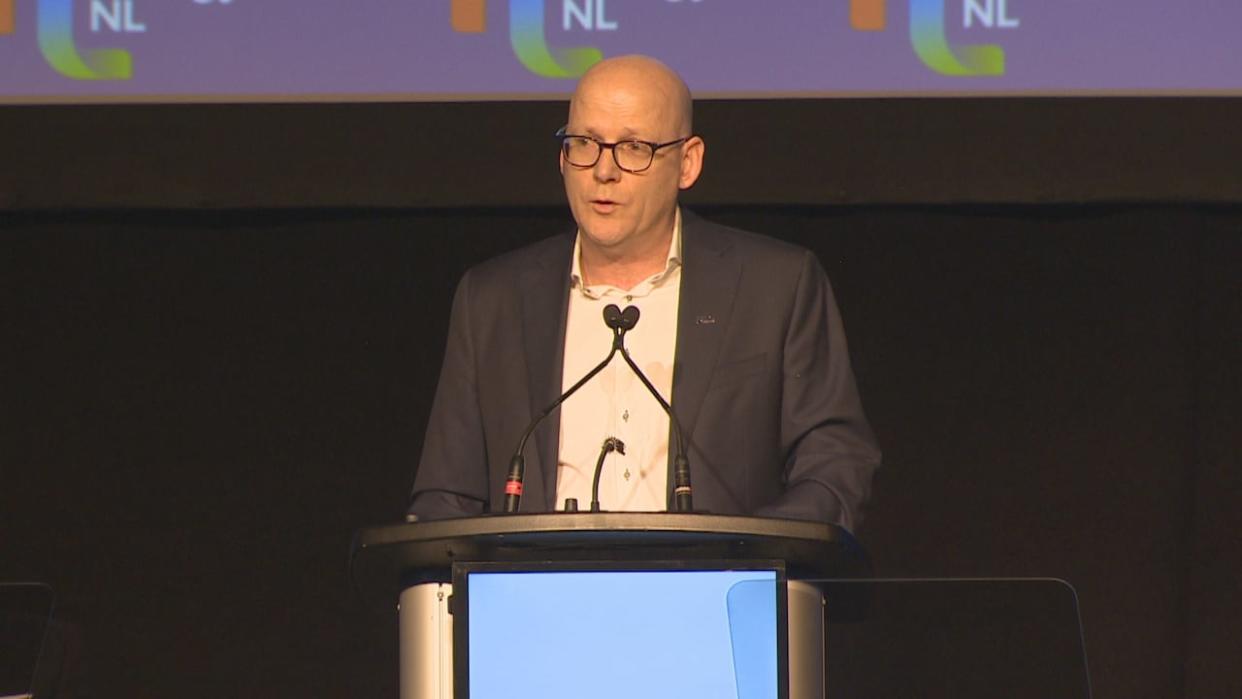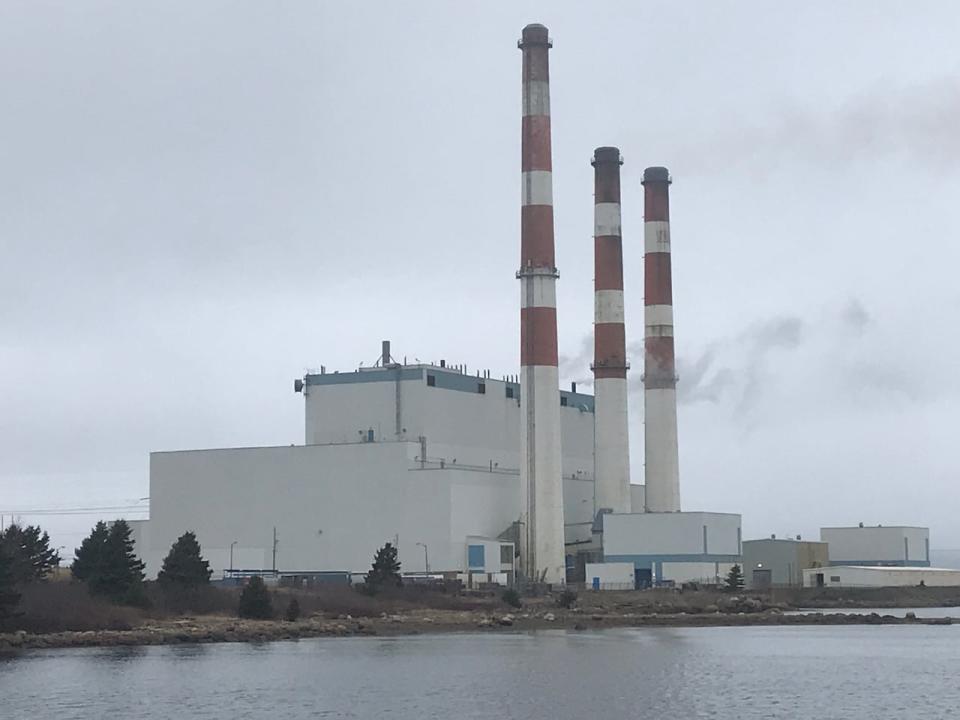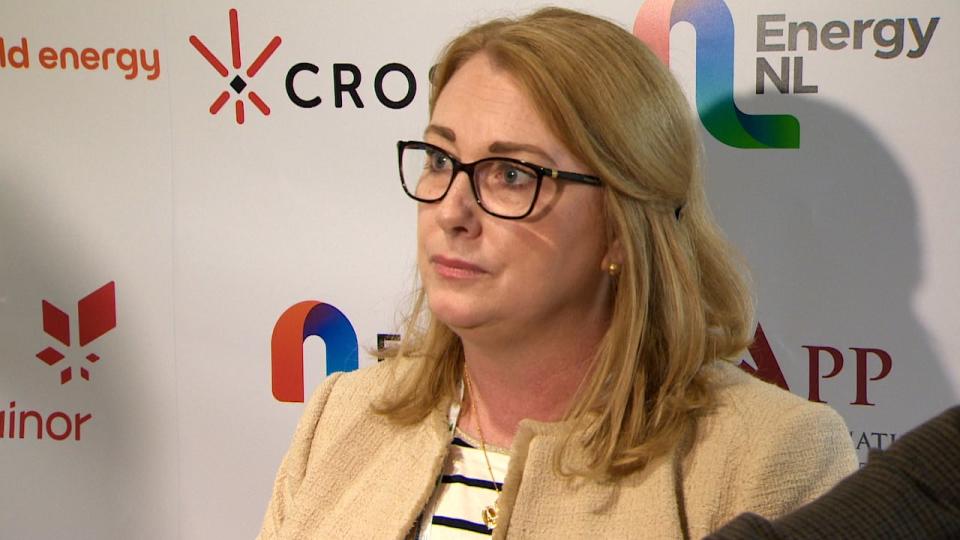Newfoundland Power, N.L. Hydro say province can't turn its back on thermal energy


Newfoundland Power president Gary Murray says the province needs a thermal energy plant that can start in a hurry and chip in during times of peak demand or system failures. (Danny Arsenault/CBC)
Newfoundland and Labrador's shift to renewable energy is going to require a carbon-emitting backup source for years to come, Newfoundland Power president Gary Murray argued Wednesday, and it's not going to be the Holyrood generating station forever.
Murray said the province needs a thermal energy plant that can start in a hurry and chip in during times of peak demand or system failures.
"It's a firm capacity. We need to have generation when renewables are not available," Murray said. "It's anticipated that this would be something that's rarely used but it's important when you need it."
Murray was asked about Newfoundland Power possibly building such a turbine itself, or partnering with Newfoundland and Labrador Hydro on the project. He said they were open to all possibilities.
The following day, however, Hydro CEO Jennifer Williams stated intentions to invest $1 billion in upgrades to the Bay d'Espoir hydroelectric dam and build a 150-megawatt combustion turbine.
The investment sends a clear signal that diesel-powered energy isn't going anywhere soon.

The Holyrood Thermal Generation Station is more than 50 years old and will need to be retired in the coming years. Before that happens, N.L. Hydro CEO Jennifer Williams says they need to find a way to replace it. (Terry Roberts/CBC)
The province currently draws the majority of its electricity from renewable sources, but the remainder comes from the aging Holyrood thermal generating station.
Williams said current diesel-burning power delivery methods are necessary on top of ongoing development for supply and reliability purposes. She said Hydro needs capacity for 380 megawatts of power by 2034.
The Holyrood station is more than 50 years old, and has fallen on hard times in recent years. Williams said they can't shut the facility down without a plan to replace the power it supplies.

Newfoundland and Labrador Hydro CEO Jennifer Williams says Hydro will need capacity for 380 megawatts of power by 2034. (Danny Arsenault/CBC)
"Some of these things are required in order to enable Holyrood's retirement. You know by that time, Holyrood will be 60 plus years old. It's performing a good service for us … but it will have an end of life, and we have to get these assets in service before we can retire Holyrood fully," she said.
Murray was asked Wednesday if he thinks it's ironic that the province's shift to renewable energy requires another diesel-burning plant to be prepared for weather events that are worsening due to climate change.
"It's really being driven by ensuring as utilities we plan for the worst-case scenario," he said. "We need to be prepared for if that does happen and lines are down, how do we supply our customers?"
Download our free CBC News app to sign up for push alerts for CBC Newfoundland and Labrador. Click here to visit our landing page.


